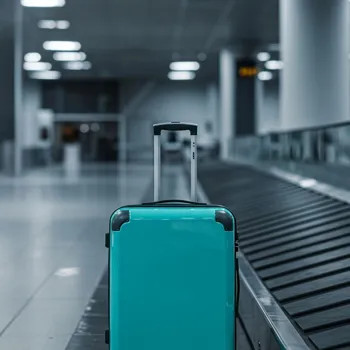Unravel the Mystery of Travel Insurance: Your Ultimate Guide to Safety & Peace of Mind. Delve deeper for expert tips!
Namaste, readers! Planning a trip, eh? Whether it's a serene getaway to the Himalayas,
a bustling city tour of Mumbai, or even a quick hop across state lines to visit family, there's one thing you should definitely tick off your checklist before you pack your bags: travel insurance.
Bohut zaroori hai! Travel insurance isn't just some fancy document – it's your safety net, your assurance, and your peace of mind while you're exploring the world, or even just exploring India. Let's find out why travel insurance is so important and what you need to know before you buy it.
Why Bother with Travel Insurance?
Think about it. You've spent months planning your vacation, saving up for it, and dreaming about all the amazing sights you'll see. But what happens if things go wrong? Imagine your flight gets delayed, your luggage gets lost, or you fall sick in a new city.
These things can quickly turn your dream vacation into a nightmare. That’s where travel insurance comes in, offering a financial cushion and support when you need it the most.
It's like having a reliable friend watching your back, ensuring that unforeseen circumstances don't completely derail your travel plans.
Travel insurance protects you from a variety of potential troubles.
Flight delays, cancellations, and lost luggage are common travel inconveniences that can be covered. If you need medical attention due to an accident or sudden illness while you're away, travel insurance can cover those costs too.
It can also help with emergency evacuations if you're in a remote area or require specialized medical care. For example, if you're trekking in Ladakh and suffer an injury, travel insurance can help arrange and pay for a helicopter evacuation to a hospital in Leh.
And in the unfortunate event of a trip cancellation due to unforeseen circumstances like a family emergency, travel insurance can reimburse you for non-refundable travel expenses.
What Does Travel Insurance Cover?
Now, let's break down what a typical travel insurance policy in India usually covers.
This will give you a better understanding of what to look for when choosing a plan. Remember, policies can differ, so always read the fine print carefully. Some plans provide cover for:
Medical Expenses
This is perhaps the most crucial aspect. If you get sick or injured while traveling, your insurance can cover doctor's visits, hospital stays, medication, and even emergency medical evacuation. In a country with different healthcare standards, in a foreign country, this can be a huge relief.
Trip Cancellation/Interruption
Life happens, and sometimes you have to cancel or cut short your trip due to unforeseen events like illness, family emergencies, or natural disasters. Your insurance can reimburse you for non-refundable expenses like flights and hotel bookings.
Lost or Delayed Baggage
We've all experienced the frustration of waiting at the baggage carousel, only to find out your luggage is missing. Travel insurance can compensate you for the loss or delay of your belongings. In cases of delay, it can help you buy essential items like clothes and toiletries.

Flight Delays
Flights are notorious for delays. If your flight is delayed for a certain number of hours (as specified in your policy), travel insurance can cover expenses like meals and accommodation.
Personal Liability
If you accidentally cause damage to someone else's property or injure someone while traveling, your insurance can cover the legal costs and compensation.
Loss of Passport and Important Documents
Losing your passport while abroad can be a real headache. Travel insurance can help with the cost of replacing your passport and other important documents.
Accidental death and dismemberment
This may include financial assistance to family.
Choosing the Right Travel Insurance Plan:
Picking the perfect travel insurance plan can feel overwhelming with so many options available. Here are some key factors to consider:
Destination: Different countries have different healthcare costs and risks. Choose a plan that's tailored to your destination. For example, if you're traveling to the US, where healthcare costs are very high, you'll need a plan with robust medical coverage.
Duration of Trip: Longer trips generally require more comprehensive coverage.
Activities: If you're planning to engage in adventurous activities like trekking, scuba diving, or skiing, make sure your plan covers these activities, as standard policies may exclude them.
Pre-existing Medical Conditions: Declare any pre-existing medical conditions to your insurance provider. Failure to do so could result in your claim being denied.
Coverage Amount: Ensure that the coverage amount is sufficient for your needs.
Consider the potential cost of medical treatment, accommodation, and other expenses in your destination.
Policy Exclusions: Carefully read the policy exclusions to understand what's not covered. Common exclusions include acts of war, participation in illegal activities, and certain extreme sports.
Claim Process: Understand the claim process and the documents you'll need to submit. Choose a company with a reputation for efficient and hassle-free claim settlement.
Tips for Buying Travel Insurance:
Buy Early: Purchase your travel insurance as soon as you book your trip. This way, you're covered for trip cancellations due to unforeseen events that might occur before your departure.
Compare Quotes: Don't just go with the first plan you see.
Compare quotes from different insurance providers to find the best deal.
Read the Policy Carefully: Take the time to read the entire policy document, including the fine print. If you have any questions, don't hesitate to ask the insurance provider for clarification.
Keep Your Documents Handy: Carry a copy of your insurance policy with you while traveling, both in print and digital format. Also, keep a record of the insurance provider's contact details in case of emergencies.
Inform Your Family: Let your family know about your travel insurance policy and where to find the documents
Making a Claim:
If, unfortunately, you need to make a claim, here's a general outline of the process:
Notify the Insurance Provider: Contact the insurance provider as soon as possible after the incident. They will provide you with instructions on how to proceed.
Gather Documentation: Collect all relevant documentation, such as medical reports, police reports, receipts, and airline tickets.
Fill Out the Claim Form: Complete the claim form accurately and submit it along with the necessary documentation.
Follow Up: Keep track of your claim and follow up with the insurance provider if you don't hear back within a reasonable timeframe.
Travel insurance is a small price to pay for the peace of mind it provides. Don't leave home without it!
So, before you embark on your next adventure, take the time to research and purchase a travel insurance plan that meets your needs. Happy travels and safe journeys!
















